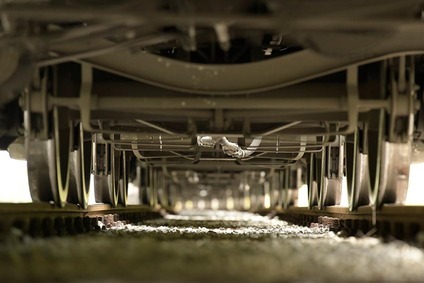
So far, the retrofitting of 1,300 vehicles of the 6,300-wagon fleet have been completed, and when purchasing another 700 freight wagons, the supplier was required to use the new technology. Due to the development, the market-leading Hungarian rail freight company will further be able to perform all transport tasks in the direction of Germany, where – with certain exceptions – the railway track can no longer be used by wagons equipped with other types of brakes.
Freight trains generate noise during braking, the rolling noise developing between the wheels and the metallic cast iron brakes is bad for the health of people living next to rail networks. According to the act of the European Commission, from the end of 2024 only quiet wagons may run on the main freight transport routes. The company replaces metallic cast iron brakes on the wagons with the new LL composite brake pads. The ban on loud freight wagons was introduced in Switzerland already in January, and the regulation will apply in Germany from mid-December. Retrofitting the wagons with quiet braking systems is particularly important for Rail Cargo Hungaria, as 80% of its transports are international.
Due to the high costs of the modernisation, RCH and ÖBB applied together for EU CEF funding, and they received a contribution of 1.5 million EUR. RCH will add an additional 4.3 million EUR from its own resources and will complete the replacement of the brake pads on its fleet by the end of 2023.
The new brake pads do not grind on the wheel’s surface and hence reduce the rolling noise of the wagons by around 10 dB. To the human ear, this equates to cutting the noise level by half. Due to the developments, noise pollution caused by traffic will also be significantly reduced in Hungary. The comfort of tens of thousands of people who live near the railway lines running through Budapest is already being improved thanks to the development of the railway company, which handles more than half of the rail freight transport in Hungary.
